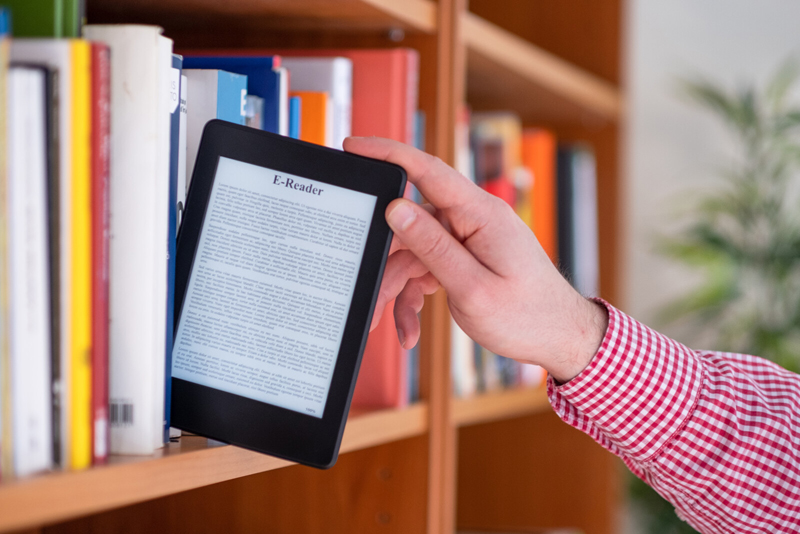Analyzing the Factors Why Books Have Come To Be a Crucial Element of the Literary Landscape
The change from typical published books to digital formats has stimulated conversations on the reasons behind this improvement. Comprehending the driving pressures behind the raising frequency of books can provide useful insights into the developing nature of literary works consumption in today's electronic age.
Ease Of Access and Convenience
Digital books have actually significantly enhanced the availability and benefit of literature in the digital age. With the rise of digital reading platforms and devices, people currently have the capability to carry an entire collection with them wherever they go. This ease is specifically valuable for students, researchers, and avid readers who no more need to lug around heavy textbooks or novels. Instead, they can just download the desired eBook onto their tool and start reading instantaneously.

Transportability for On-the-Go Reviewing
With the development of digital analysis systems and devices, the boosted mobility of literature has actually transformed the way people consume publications, enabling for on-the-go analysis effortlessly. Books have actually gotten rid of the need to bring bulky physical publications, enabling viewers to access a large collection of texts via compact tools such as smartphones, e-readers, or tablet computers. This ease has changed analysis practices, as people can currently enjoy their favored books during commutes, traveling, or any spare minute in their day.
Cost-Effectiveness and Price
In today's literary landscape, the element of cost-effectiveness and price plays an important duty fit visitors' access to a wide array of literary works. E-books have actually changed the method visitors access material by providing a much more economical alternative to conventional published publications. The price of producing and distributing books is dramatically less than that of physical books, allowing publishers to pass on these cost savings to customers. This cost variable has actually equalized literary works, making it accessible to a more diverse and substantial target market.
Additionally, digital books typically come at a fraction of the cost of print publications, making it possible for visitors to buy and delight in multiple titles without damaging the financial institution. Numerous books are also readily available free of cost or at reduced prices, further enhancing their allure to cost-conscious viewers. Furthermore, the digital nature of e-books gets rid of costs connected with printing, delivery, and storing physical duplicates, adding to their total cost.
Environmental Influence and Sustainability
The environmental footprint of electronic reading systems has amassed boosting attention in conversations surrounding the sustainability of literary intake methods. E-books, as a much more eco-friendly alternative to typical printed publications, provide substantial benefits in lowering paper carbon, use, and logging emissions connected with the posting sector. By changing towards digital layouts, readers add to conservation efforts and advertise a greener approach to taking pleasure in literature.
One of the vital advantages of books depends on their ability to get rid of the demand for paper production, which plays a considerable duty in reducing the environmental effect of publication publishing. With the rise of electronic analysis devices and e-readers, the demand for paper sources lessens, resulting in a reduction in the variety of trees lowered for paper production. Furthermore, the transportation and circulation of electronic publications require fewer resources and produce reduced degrees of greenhouse gas exhausts contrasted to physical publication delivery.
Fundamentally, the adoption of books lines up with sustainability objectives by minimizing the ecological effects traditionally associated with the literary industry (ebook store). As readers embrace digital platforms, they actively take part in fostering a much more sustainable future for the literary landscape
Technological Developments in Checking Out

One substantial technical improvement in reading is the development of e-ink modern technology, which simulates the appearance of ink on paper, lowering eye stress and offering an analysis experience that very closely looks like traditional publications. The accessibility of audiobooks and text-to-speech functions has actually made literary works more comprehensive for individuals with aesthetic problems or those who choose listening to analysis.
In addition, the assimilation of interactive elements in electronic books, such as multimedia web content and hyperlinks, boosts the analysis experience by providing an extra immersive and interesting way to take you can try this out in content. These technical innovations in checking out not just deal with the developing preferences of modern-day viewers but likewise open brand-new possibilities for the future of literature in the digital age.
Verdict

E-books have eliminated the need to carry bulky physical books, enabling readers to access a large library of texts through compact devices such as tablet computers, e-readers, or smart devices. look at here Books have revolutionized the means viewers accessibility material by using a much more budget-friendly alternative to typical published books.Furthermore, eBooks often come at a portion of the expense of print publications, allowing viewers to purchase and take pleasure in numerous titles without breaking the bank. E-books, as an extra ecologically friendly choice to standard printed publications, use significant advantages in minimizing paper deforestation, carbon, and use discharges linked with the publishing industry.One of the crucial advantages of e-books lies in their capacity to get rid of the need for paper manufacturing, which plays a significant duty in decreasing the ecological impact of publication publishing.